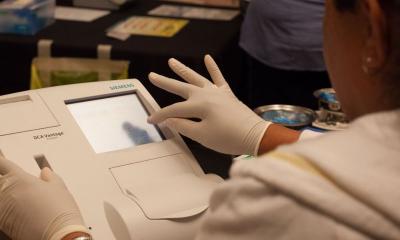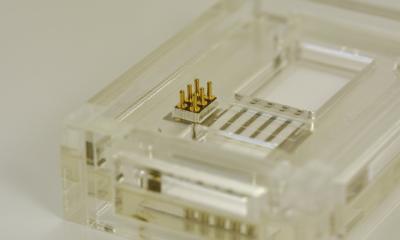Lab-on-a-chip
Multiplexed lab-on-a-chip bioassays for testing antibodies against SARS-CoV 2 and its variants in multiple individuals
The ongoing coronavirus pandemic caused by SARS-CoV-2 and its variants is still a major public safety issue worldwide. The “alpha” variant B.1.1.7, the “gamma” variant P.1, the “beta” variant B.1.351, and the “delta” variant B.1.617 are of particular concern because of their high prevalence. Large-scale vaccination and sensitive detection are vital for preventing the spread of Covid-19 infection.

Image source: Southern University of Science and Technology
To this end, teams from the Hospital of Guangzhou Medical University, and from the Department of Biomedical Engineering, Southern University of Science and Technology, Shenzhen, China, have established multiplexed lab-on-a-chip bioassays for testing antibodies against SARS-CoV-2 and its variants.
‘Virus neutralization assays that can measure neutralizing antibodies in serum are vital for determining vaccine efficacy,’ said Prof Yong Xia, Department of Clinical Laboratory, Third Affiliated Hospital of Guangzhou Medical University. Compared with ELISA, their method demonstrates a low consumption of sample and reagents (10 μL), a low threshold for detection (0.08 ng/mL), a rapid sample-to-answer time (about 70 min), and multiplexed ability (5 targets in each of 7 samples in one assay).
Results were published in 2022 in Analytical Chemistry. ‘We can also ramp up the throughput as needed,’ said Prof Xingyu Jiang. His team performed a plaque reduction neutralization test (PRNT) for all volunteers. Compared with PRNT, their assay is fast, accurate, inexpensive, and multiplexed with multiple-sample processing ability, which is good for large-scale serodiagnosis and vaccine evaluation.
01.11.2022





